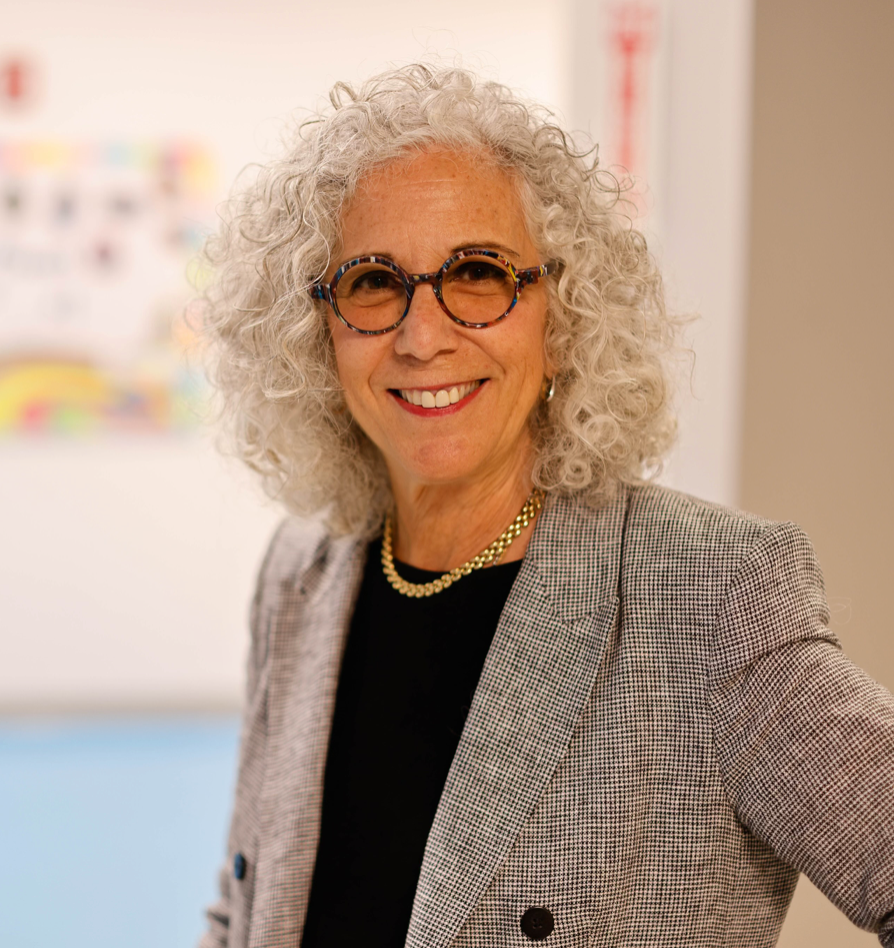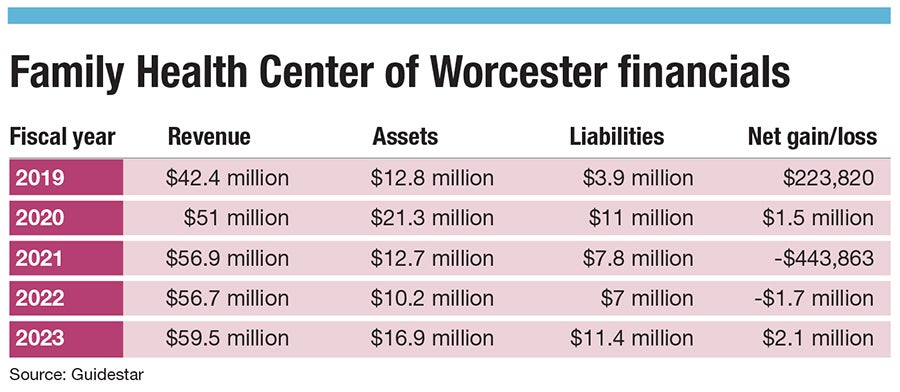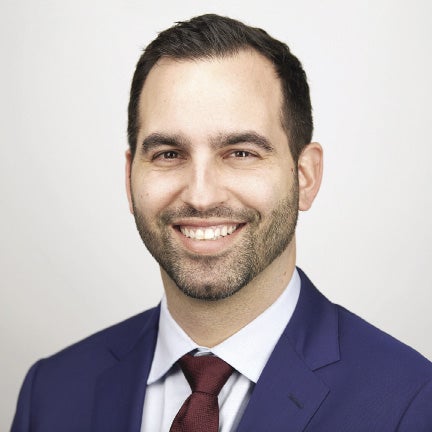Spiliotes comes into the volunteer role as the community health center has just emerged from a financial crisis and is looking to forge a strategic plan for a sustainable future.
Get Instant Access to This Article
Subscribe to Worcester Business Journal and get immediate access to all of our subscriber-only content and much more.
- Critical Central Massachusetts business news updated daily.
- Immediate access to all subscriber-only content on our website.
- Bi-weekly print or digital editions of our award-winning publication.
- Special bonus issues like the WBJ Book of Lists.
- Exclusive ticket prize draws for our in-person events.
Click here to purchase a paywall bypass link for this article.
Amelia “Lia” Spiliotes didn’t find out until later in life that her family didn’t have health insurance when she was growing up in a small town on the eastern end of Long Island.
She imagines how frightening it must have been for her mother, a woman whose freedom was limited while growing up in an occupied village in Greece during World War II, to not know if her children could receive health care when needed.

“I feel passionate about the fact that health care, it's a right,” she said. “The whole idea of freedom and access is really critical to me personally, but I know I have a possibility of helping others to achieve that as well.”
Spiliotes, who is president and CEO of Crossroads Continuum, a Hudson-based nonprofit providing education and services to those with autism and their families, on Nov. 19 was named board chair of Family Health Center of Worcester. She comes into the volunteer role as the community health center has just emerged from a financial crisis and is looking to forge a strategic plan for a sustainable future.
“Lia and her experience has helped to lead the conversation within the board around what's the path to repositioning ourselves, improving the business equation for ourselves, but more importantly, having the wherewithal to truly meet the mission as it was conceived of 60 years ago,” FHCW President and CEO Brady said.
Major aspects of FHCW’s future include diversifying its revenue, owning its facilities, and seeking more community partnership, all while switching to a care model designed to keep people healthier.
“We need to take care of the folks who come into our center, that are in our school-based programs, that are in the homeless shelter and medical support. We need to take care of them, because at the end of the day, everybody can vote with their feet,” said Spiliotes.
Driving financial sustainability
“She has a very deep and strategic understanding of the challenges that we face in health care,” Brady said.

FHCW is in a financial rebound after closing three of its former locations in Southbridge and Webster and furloughing 10% of its staff in September 2022. In November of that year, the organization launched its 120-day Better Together operation to streamline operations and reduce costs.
Those efforts seemed to have paid off: FHCW reported a $2.1-million budget surplus in fiscal 2023 and a $947,001 surplus in fiscal 2024, although work needs to be done to secure financial success moving forward, Brady said.
One of the challenges of running a federally qualified health center is the reliance on federal and state reimbursements and programs, said Brady. The federal and state governments showered community health centers with funds during the COVID pandemic because they offered a safety net, but the support has somewhat dissipated.
Ensuring FHCW’s future financial stability is going to mean diversifying the center's revenue streams to mitigate the ups and downs as the government leadership changes, he said.
The center is exploring transitioning from renter to owner of its facilities with the goal of solidifying a more permanent philanthropy structure, said Brady.
Community health centers throughout the country are suffering financially, said Spiliotes.
Of the 420 community health centers surveyed last year by the National Association of Community Health Centers, 85% reported expecting to face financial and/or operational challenges solely due to Medicaid redeterminations.
“We need to think differently about what we do. And that thinking differently comes from my ethnic background and growing up,” said Spiliotes. “I look to see what's possible amid all the impossible.”
Community health centers’ dependency on reimbursements doesn’t allow for the financial growth that these health centers need. As a result, Spiliotes wants FHCW to look beyond the traditional model to new opportunities for revenue.
From working within the housing market to exploring digital platforms to offer services on a membership basis, she and the board plans on centering initiative sustainability as they seeking alternate sources of income.
In addition, FHCW has been in the process of moving toward a value-based care system, a collaborative approach to health care in which hospitals and providers are paid based on quality, equity, and cost of care rather than the quantity of services provided.
While FHCW has made significant investments into this model, Brady said it’s a waiting game when it comes to reaping the fiscal benefits.
“The investment happens today. The work happens today. The payment happens a year or two out,” he said. “That's a very difficult way to operate.”

Building community connections
FHCW is working to implement this newer model while still operating within an older infrastructure, leading the center to not be able to see all the patients necessary and fulfill the promise of value-based care, said Brady.
To address this, Spiliotes and the board have been instrumental in mapping a new strategic plan to work with others to collaboratively address patients' needs inside and adjacent to the healthcare space.
“Only by renewing our relationship with community can we take back control of our lives,” said Spiliotes.
Community partners can help FHCW deliver a broader range of services more efficiently, she said.
“We don't have to invent everything. There are other people out there who do things and do them really well, and we need to come together as a family to say this is a population that is underserved, that is in great need,” she said.

Spiliotes has led the creation of Crossroad Continuum’s strategic plan, taking a human-centered approach to identifying needs within the nonprofit.
“She's a perfect balance of business sense and then emotional intelligence where she really understands the human factor of everything,” said Greg Furst, board chair at Crossroads Continuum and president of New England Applied Products in Waltham. “[She’s] making sure that all parts of the community, whether that be internal to the organization or external to the community … [are] getting a voice.”
Spiliotes hosts Breakfasts With Lia, one-on-one/small group listening sessions, to learn what Crossroads employees’ challenges are and how she can address them.
Furst would have hired a third-party consultant to help create the strategic plan, but Spiliotes was able to take on the challenge herself. The impact of her efforts to listen and make her employees feel heard are felt throughout the entire organization, said Furst.
It is with this same approach that Brady sees Spiliotes tackling the mission and goals of FHCW.
“Our goal as a community health center is to build a community collaborative that truly puts the power in the hands of the people and gives them that same opportunity to have a long path and a robust path,” said Brady. “I see Lia as having a unique understanding of that mission, of that legacy, and the raw intelligence and the lived experience to help turn that into reality.”
Mica Kanner-Mascolo is a staff writer at Worcester Business Journal, who primarily covers the healthcare and diversity, equity, and inclusion industries.
